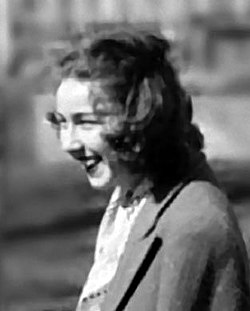Flannery O'Connor Quote
There is one myth about writers that I have always felt was particularly pernicious and untruthful—the myth of the lonely writer, the myth that writing is a lonely occupation, involving much suffering because, supposedly, the writer exists in a state of sensitivity which cuts him off, or raises him above, or casts him below the community around him. This is a common cliché, a hangover probably from the romantic period and the idea of the artist as a Sufferer and a Rebel.Probably any of the arts that are not performed in a chorus-line are going to come in for a certain amount of romanticizing, but it seems to me particularly bad to do this to writers and especially fiction writers, because fiction writers engage in the homeliest, and most concrete, and most unromanticizable of all arts. I suppose there have been enough genuinely lonely suffering novelists to make this seem a reasonable myth, but there is every reason to suppose that such cases are the result of less admirable qualities in these writers, qualities which have nothing to do with the vocation of writing itself.
There is one myth about writers that I have always felt was particularly pernicious and untruthful—the myth of the lonely writer, the myth that writing is a lonely occupation, involving much suffering because, supposedly, the writer exists in a state of sensitivity which cuts him off, or raises him above, or casts him below the community around him. This is a common cliché, a hangover probably from the romantic period and the idea of the artist as a Sufferer and a Rebel.Probably any of the arts that are not performed in a chorus-line are going to come in for a certain amount of romanticizing, but it seems to me particularly bad to do this to writers and especially fiction writers, because fiction writers engage in the homeliest, and most concrete, and most unromanticizable of all arts. I suppose there have been enough genuinely lonely suffering novelists to make this seem a reasonable myth, but there is every reason to suppose that such cases are the result of less admirable qualities in these writers, qualities which have nothing to do with the vocation of writing itself.
Related Quotes
About Flannery O'Connor
O'Connor was a Southern writer who often wrote in a sardonic Southern Gothic style. She relied heavily on regional settings and grotesque characters, often in violent situations. In her writing, an unsentimental acceptance or rejection of the limitations, imperfections or differences of these characters (whether attributed to disability, race, crime, religion or sanity) typically underpins the drama.
O'Connor's writing often reflects her Catholic faith, and frequently examines questions of morality and ethics. Her posthumously compiled Complete Stories won the 1972 U.S. National Book Award for Fiction and has been the subject of enduring praise.
